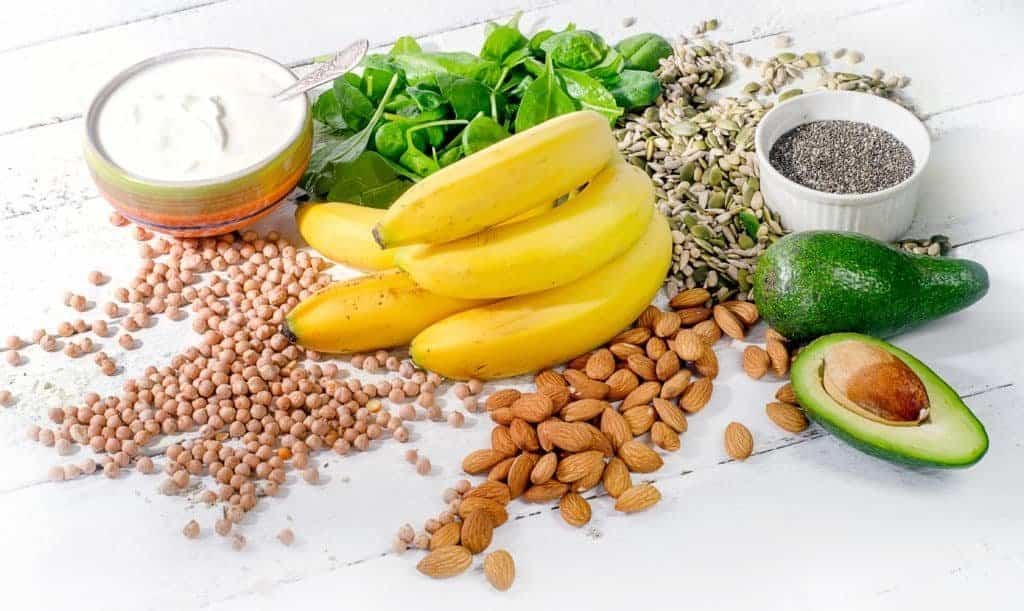Muscle cramps – how to prevent them with magnesium?
Magnesium is an essential element, which is involved in literally hundreds of enzyme reactions in the human body that participate in protein synthesis and ensure the proper functioning of muscles, including the heart muscle. It is necessary for the energy metabolism, but it also participates (along with other minerals, such as calcium) in maintaining healthy bones. More than half of the magnesium in our body is found in the bones, approximately 50-60 percent. Besides its role in enzymatic reactions, which are mainly involved in energy metabolism, magnesium is also important for maintaining the proper electrolyte balance.
The recommended daily intake of magnesium for adults is 300 to 375 mg, and the average woman (who is not very physically active) needs it slightly less than men. The required daily dosage of magnesium could be taken through diet, for example, by eating 100 grams of oatmeal, 180 grams of cooked spinach, two slices of rye bread, one espresso and 164 grams of cooked wild rice every day. Magnesium, which is essential for optimal functioning of our body, is fortunately found in food, such as various nuts, whole grains, legumes and green vegetables, potatoes, milk, poultry, oranges, bananas, water, coffee and tea.

Magnesium against muscle crumps
Unfortunately, with the fast lifestyle, we often forget to eat properly and healthy. Therefore, many people suffer from magnesium deficiency, which usually manifests in the form of muscle cramps, muscle pain, also a lack of appetite, raised blood pressure and possible cardiac dysfunction. Fortunately, only in individuals suffering from severe magnesium deficiency, an electrolyte imbalance may occur. It is important to mention that magnesium deficiency increases the risk of heart disease, stroke and high blood pressure.

Did you know that magnesium (labelled as Mg in the chemical periodic table of elements) is found in nature in the form of crystals? As such, of course processed into powder (then packed in capsules), manufacturers offer it as a dietary supplement. As already mentioned, magnesium is involved in more than 300 enzyme systems that are involved in protein synthesis, cell division, muscle, nerve cell and heart function, blood glucose and blood pressure regulation.
This essential and important for the health mineral, magnesium, also participates in maintaining healthy bones and teeth, supports healthy and optimal nervous system, and is essential for normal mental functioning, maintaining electrolyte balance and the normal formation of DNA and RNA molecules. Therefore, mentally burdened individuals and those under stress need more magnesium than other people.
Our magnesium needs vary
The recommended daily intake of magnеsium for adults is (we are talking about the ideal value) around 375 mg. The World Health Organization (WHO) recommends a daily dose of 300 mg to treat magnesium deficiency. The need for this mineral depends on our age, growth period, physical activity, pregnancy or breastfeeding, exposure to stress, the amount of fluid drunk daily, taking certain magnesium-neutralizing medications and, ultimately, our general health. We have a higher need for magnesium during diarrhoea, vomiting, taking laxatives and diuretics, alcoholism, type II diabetes or in case of hyperthyroidism.
Around 50-60 percent of magnеsium is found in the bones, 20 percent in the muscles, 19 percent in other soft tissues, and less than 1 percent in the extracellular fluids. Therefore, the concentration of magnеsium in the blood does not say enough about the general supply of magnesium in our body. Breastfeeding mothers have higher needs for magnеsium and should consume it, one way or another – with an enriched diet or with the help of dietary supplements, as much as 390 mg per day. Next are the pregnant women who need 310 mg of magnеsium per day. Average adult needs around 300 to 350 mg of magnеsium per day.
The European nutrition experts say that children up to the age of three need 80 mg of magnesium per day, those up to the age of 10 need 170 mg per day. Magnesium deficiency affects the electrolyte balance in the body, increases the risk of heart disease, stroke, affects the decreased calcium and potassium serum levels. Minor deficiencies can cause confusion, lack of appetite, muscle cramps, lethargy, high blood pressure, and heart problems.
Magnesium deficiency is associated with an increased incidence of metabolic syndrome disorders. More magnesium should be consumed in particular by diabetics, the elderly and people who have reduced absorption (from food) or increased magnesium excretion due to certain medications.
On average, 30 to 60 percent of consumed magnesium is absorbed in the gastrointestinal tract. Reduced absorption and loss of magnesium are caused by certain dietary fibre, phytic acid (phytates), caffeine, phosphate and some food processing procedures (cooking), also in patients with intestinal diseases, polyuria, type II diabetes and diarrhoea, magnesium absorption is further reduced.

Food that contains magnesium
Magnesium is naturally present in many foods, usually a good source of magnesium is food that contains a higher chlorophyll content, plants with green colour and dietary fibre, rich source of magnesium also are sunflower seeds, soy, cashews, cocoa, almonds, black beans, wild rice, cabbage, potatoes, oats and rye.
Magnesium is also present in large quantities in some mineral waters. In dietary supplements, magnesium can be in different forms, which vary in magnesium content and bioavailability. The most bioavailable are organic forms of magnesium, especially magnesium citrate, as well as magnesium gluconate and magnesium aspartate. The inorganic forms are not as bioavailable and are therefore less effective (magnesium chloride, magnesium oxide, magnesium sulphate). The Magnesium dietary supplement from the Slovenian brand Nature’s Finest contains the highest quality and bioavailable form of magnesium.

Magnesium
Highest quality and the most bioavailable form of magnesium
- 375 mg of magnesium per dose
- Magnesium citrate for best absorption
- Helps with normal muscle function ¹
- Contributes to normal psychological functions ¹
- For healthy bones and teeth ¹
and save £1.21
100% safe purchase with a no-questions-asked return policy.
Muscle cramps are a sign of magnesium deficiency
The most common cause of leg cramps and muscle pain is acute magnesium deficiency. In this case, it is recommended to take magnesium in a form of dietary supplement.
Magnesium treatment, especially in the form of magnesium citrate, eliminates these problems and magnesium as a dietary supplement can be safely taken as a long-term therapy, especially for the treatment of muscle cramps without side effects. Taking magnesium cures the cause of leg cramps – the magnesium deficiency. By taking this mineral, sometimes even the very painful leg cramps will become a thing of the past, especially those that appear during sleeping. The frequency of leg cramps increases significantly with age, so taking nutritional supplements is important for elderly people, and is highly recommended for pregnant and breastfeeding mothers, athletes and people under stress.
Magnesium successfully relieves muscle cramps. Even people with kidney damage do not have to worry about overdose. Excess magnesium in the body is excreted through sweating or urine. With regular and higher doses of magnesium, you can overcome its deficiency.
However, it is important to consume magnesium for a longer period of time, at least 4-6 weeks. If you suffer from night cramps in your legs, take magnesium in the evening, before going to bed. It will also help you sleep better, especially in combination with melatonin.


